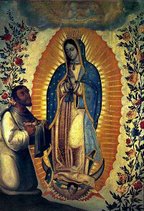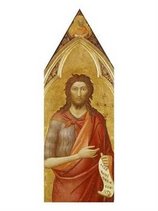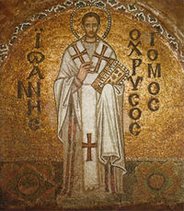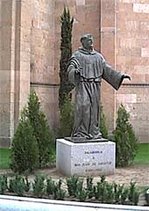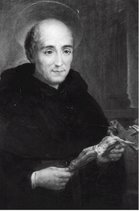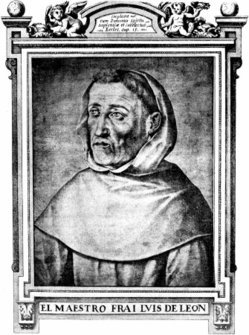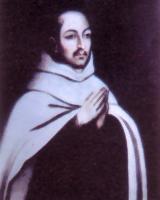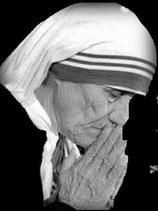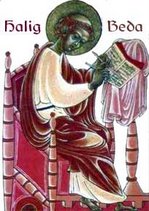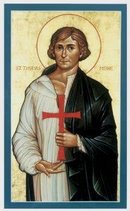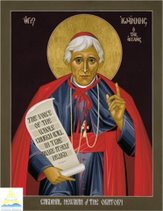Monday, September 15, 2008
Thursday, September 11, 2008
Notes on a parable
(My latest translation from the Spanish)
In the rearguard in the big city, life was very sad. The smiles from the old days had frozen on their lips; the radio told nothing but news- sometimes good sometimes bad and people scraped by overcome with the memory of those boys that were losing their lives at the front.
The boys lost their lives at the front, singing light-hearted songs and reciting The Ballad of Whitehorse. They would laugh and drunk up the sober taste of risk, fear, and companionship along with their flasks of whiskey.
When they returned to the cities wounded or on leave a cloud surrounded them. It wasn’t only the aura of heroism but the light of an intimate and elemental happiness.
In the beginning only poor left-over sods and some laughable and extravagant patriots went to war. But little by little the number of volunteers grew until they became a multitude. Perhaps no one ever knew, not even the soldiers themselves, but these volunteers were deserting an emptiness, looking to grasp onto happiness and at times a little frivolity. No one knew it or said so and in any case it doesn’t matter because happiness is just another name for doing your duty but one with a better marketing campaign.
(from the blog Rayos y Truenos of the Andalusian poet Enrique García-Máiquez.)
The Spanish original:
Notas para un parábola
En la retaguardia, en la gran ciudad, la vida era tristísima. Las viejas sonrisas se habían helado en los labios, la radio no daba más que noticias —a veces buenas, a veces malas— y las gentes se arrastraban apesadumbradas con el recuerdo de los muchachos que se estaban dejando la vida en el frente.
En el frente, los muchachos, se dejaban la vida, y también cantaban canciones ligeras, recitaban “La balada del caballo blanco”, se reían, apuraban el sabor recio del riesgo, del miedo, del compañerismo y de sus petacas de whisky.
Cuando volvían a la ciudad de permiso o convalecientes, les rodeaba un nimbo. No era sólo el aura del heroísmo, sino la luz de una felicidad íntima y elemental.
Al principio, a la guerra iban los pobres mozos de reemplazo y algunos patriotas extravagantes y risibles. Poco a poco, fue aumentando el número de voluntarios, que acabó siendo una muchedumbre. Quizá nadie lo supo nunca, ni ellos mismos, pero esos voluntarios sobrevenidos desertaban de un vacío, buscaban el arrimo a la felicidad, un poco de frivolidad a ratos. O nadie lo supo o no se dijo; y en cualquier caso no importa, porque la felicidad es sólo otro nombre —con más fortuna publicitaria— del cumplimiento del deber.
Posted by
Antonio449
at
8:22 PM
1 comments
![]()
Monday, September 08, 2008
Indonesian Classical Guitar
Classical guitar music from Indonesia, what the %$%? Well I was just sent this link from the Indonesian e-mail list and it is quite good. I know a few things about this from a connoisseur's perspective having listen to compositions by Barrios, Tárrega and others.
His name is Juping Kristianto. The piece linked here is Becak Fantasy. A becak is the Indonesian rickshaw, or human taxi.
P.D.
Here is a recent article on Jubing in the English-language Jakarta post.
Posted by
Antonio449
at
10:02 PM
0
comments
![]()
Friday, September 05, 2008
My Russian best

Here are a list of my favorite works of Russian literature complete with comments.
19th century
Griboyedov, Aleksandr
Woe from Wit
A great play about generations and the conflict of ideas. Chatsky, the main character, returns to Moscow after studying abroad to find that his hometown considers him insane for the new attitude and ideas he brings back.
Pushkin, Aleksandr
Poetry
His greatest poems include the Bronze Horseman and his novel in verse Eugene Onegin.
Short Stories
Besides being a great poet, Pushkin also pioneered the Russian prose tradition. His short stories are very stylish and concise.
Gogol, Nicolai
Ukrainian Tales
Short stories set in Gogol's native Ukraine featuring stock characters like the lusty seminarian and the horrifying gnome creature Viy with eyelids that reach to the floor.
Petersburg Tales
The strangest part of Gogol, if that is possible. Contains such classics as the Nose, Nevsky Prospect, Diary of a Madman, and the Overcoat. Just think of a Kafka before Kafka.
The Government Inspector
Gogol's play about corrupt city officials and their scrambling attempts to cover up their crimes when they mistake a young stranger for the Government Inspector.
Dead Souls
The story of Pavel Chichikov who wanders rural Russia buying up the dead to serfs who have died in the last year before they are taken of the ledgers. A tour de force prose poem for the ages.
Lermontov, Mikhail
A Heroe for Our Time.
The main character, Pechorin, is everyone's favorite unfeeling prick who uses people for his own purposes before disposing of them. This collection of intertwined narratives is set in the majestic setting of the Caucuses.
Goncharov, Ivan
Oblomov
This novel is about an aristocrat that doesn't do anything. It's as if Alonso Quijano dreamt of being Don Quixote but never quite got around to it.
Dostoyevsky, Feodor
The House of the Dead
This is a fictionalized account of Dostoyevsky's time in a Siberian prison camp.
Diary from the Underground
This short story's main character is a unique creation in all literature.
Crime and Punishment
A maddening novel, like all of Dostoyevsky. A tale of intellectual pride and redemption. My favorite part of the novel is the ending.
The Brothers Karamazov
A challenging work. The character of Elder Zosima and Alyosha the monk in the world are classics. Also, one cannot forget the Grand Inquisitor as told by the atheist Ivan
Tolstoy, Leo
Anna Karenina
I have read most of this work but did not quite finish due to some unforeseen event. Yet I still remember many of the characters and descriptive language.
The Death of Ivan Ilyich
A novella about the decline and fall of an ambitious minor noble.
Vladimir, Soloviev
The Antichrist
An unforgettable fable of the end times.
Chekov, Anton
Short Stories
Chekov is one of the best short story writers in the history of literature.
20th century
Bely, Andrei
St. Petersburg
This experimental novel is akin to Joyce's Ulysses some 20 years later.
It portrays the conflict between the old guard and the rising generation that would head off the Revolution.
Bulgakov, Mikhail
Heart of a Dog
A novella about a Soviet scientist who takes a dog of the street and turns him into a man by altering his pituitary gland. A satire of Stalinist Russia.
Master and Margarita
A phantasmagorical romp through 1930's Moscow featuring the Devil and a cat named Behemoth.
Voinovich, Vladimir
The Ivankiad
A satire about collective housing in Soviet Russia.
21st century
(same author)
Monumental Propaganda
The history of a staunch Stalinist woman and the changing currents within the USSR political establishment from de-Stanlistization, Brezhnev and beyond.
Posted by
Antonio449
at
3:06 PM
1 comments
![]()
Thursday, September 04, 2008
Georgia on my mind

Continuing with the Orthodox theme I would like to comment a bit on the recent Georgian conflict by sharing a bit of this country's culture. Georgia along with neighboring Armenia were some of the first countries to establish Christianity as the official religion around the 4th century A.D.
I have saw a Georgian movie in my Soviet Cinema class at college. The language is very different than Russian complete with its own alphabet and artistic heritage. Here is an example:
შენ ხარ ვენახი, ახლად აყვავებული,
ნორჩი კეთილი, ედემს შინა ნერგული,
(ალვა სუნელი, სამოთხეს ამოსული,)
(ღმერთმან შეგამკო ვერვინა გჯობს ქებული,)
და თავით თვისით მზე ხარ და გაბრწყინვებული.
The above is a medieval Georgian hymn to the Virgin Mary which you can listen to here- Thou Art A Vineyard.
P.D.
Of course one can never forget the most famous Georgian of the 20th century- Stalin. They help to highlight the delicacy of the Russian-Georgian situation. But that's a story for another time.
Posted by
Antonio449
at
7:49 PM
1 comments
![]()
Tuesday, September 02, 2008
A brush with an Eastern Orthodox Saint at the Greek Festival

This past Labor Day weekend we went to the Greek Festival at The Church of the Annunciation near downtown Columbus for the third year in a row. We go mainly because it is cheep, the food abundant and good, and the contact with Greek Orthodoxy is always interesting. My favorite part of course is going to the Cathedral bookstore to peruse icons and theological tomes. In previous years I had bought a book about the Ecumenical Councils as well as works by St. John Chrysostom.
This year; however, there was a clearance sale which included Russian Orthodox Saints' writing. For a Western Christian, Russian Orthodox thinkers are often more accessible in that they enter into dialogue with Modern Western ideas. Therefore writers like Vladimir Soloviev, Sergius Bulgakov can be very instructive in their critique of modernity and the concern for Tradition.
In this same vein, 19th century Russian Orthodox works like the Pilgrim's Journey contain much of the drama and pathos of the great Russian writers of the period all placed in a religious context. So it was a stroke of great fortune that I happened across a copy of My Life in Christ by St. John of Kronstadt.
Born Ivan Ilyich Sergiyev, he was a son of a poor family in Northern Russia near Archangel born around 1829. Ivan eventually became a parish priest near the Imperial capital St. Petersburg on the island of Kronstadt which was home to society's undesirables including sailors, convicts, and factory workers. From what I can gather he was the only married priest ever to be canonized in the Russian Orthodoxy. In Orthodoxy as in Eastern Catholicism the spiritual ideal centers around monasticism, so this fact is surprising and illuminative of his character.
My Life in Christ consists of his personal spiritual journal he kept over many years from the 1850's onward. This is a truly great work. What follows are two extracts:
How is it that the saints see us and our needs and hear our prayers? Let us make the following comparison: Suppose that you were transplanted to the sun and were united to it. The sun lights the whole earth with its rays, it lights every particle of the earth. In these rays you also see the earth, but you are so small in proportion to the sun, that you would form, so to say, but one ray, and there are an infinite number of such rays. By its identity with the sun this ray takes an intimate part in lighting the whole world through the sun. So also the saintly soul, having become united to God, as to its spiritual sun, sees, through the medium of its spiritual sun, which lights the whole universe, all men and the needs of those that pray.
------------------------------------------------------------------------------------
Think oftener: Whose wisdom appears in the construction of your body? Who has ordered the laws of your thoughts, so that until now these laws are followed by all men? Who has engraved in the hearts of all men the law of conscience, so that until now it rewards the good and punishes the evil in all men? The Almighty, All-wise, and most gracious God! Thy hand is constantly upon me, a sinner, and there is no moment when Thy mercy leaves me. Grant me, then, always to kiss, with living faith, Thy gracious hand. Why should I go far to seek for the traces of Thy mercies, of Thy wisdom, and Thy omnipotence? O! how clearly these traces are visible to me! I, I myself am a miracle of God's goodness, wisdom and omnipotence. I myself--on a small scale--am a whole world; my soul is the representative of the invisible world; my body--of the invisible one.
My Life in Christ is accessible on-line by clicking here.
In addition to the above work St. John also wrote a number of poems touching on the spiritual life. He died near the end of 1908, three years after the Decembrist 1905 uprising, but before the real horrors would be unleashed.
Posted by
Antonio449
at
12:39 PM
0
comments
![]()

